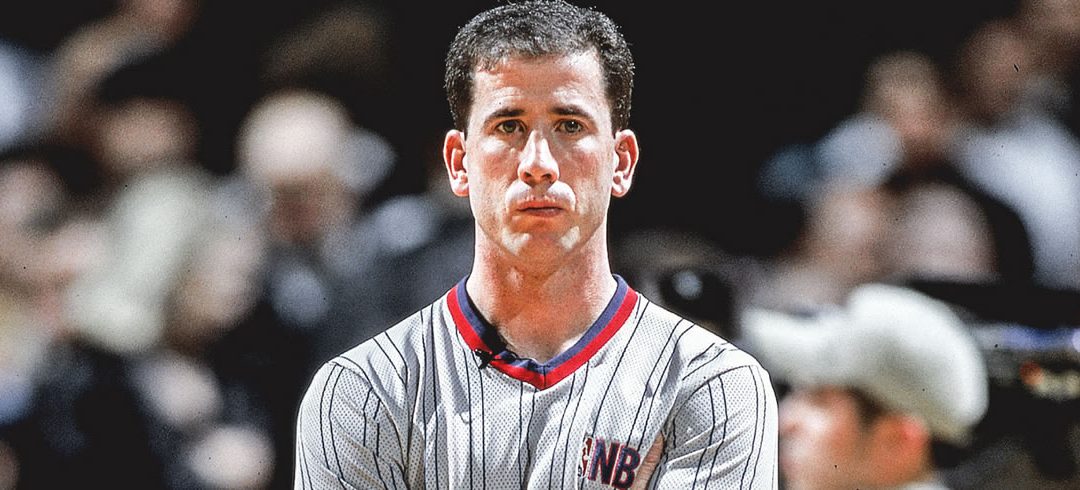Earlier this week ESPN published an article about how Tim Donaghy, the former NBA ref who used to bet on the games he officiated, may have fixed the matches he worked. While Donaghy spoke out against these claims, he believes that the legitimacy of sports may be jeopardized by legal sports betting.
“I think we’re close to another major scandal. But, I think it’s going to be most likely at the college level with one of those kids who may not have economic worth and have family needs,” said Donaghy.
Since the repeal of PASPA in May of 2018, eight states have legalized some form for gambling on sports. There are also currently 22 states who have at least one type of sports wagering bill introduced in either their House or Senate.
However, the black-market betting avenues that Donaghy used during the time he was officiating are still widely available and used by residents who live in states that have local sportsbooks.
Precautions have been attempted to avoid another scandal such as NBA and MLB commissioners asking for integrity fees, states not allowing bets on certain collegiate teams, and sportsbooks not taking in bets from certain people involved in the game.
Still, many fans are worried that Donaghy’s prediction may come true. With sports betting becoming a more acceptable activity across the country, players, refs, and coaches in the NCAA may see it as a way to win big at the cost of a team’s loss.
Could He Actually Be Right?
As stated before, some states have taken precautions when it comes to betting on collegiate sports. For example, New Jersey gambling laws do not allow a person to place a wager on any college sports matchup in their state or on teams that are housed within N.J. borders.
Arkansas is also currently taking time to ensure that their college games aren’t compromised. Just this month, four athletic directors in the state submitted a letter to the Arkansas Racing Commission to edit the state’s sports wagering rules so that people such as players couldn’t bet.
Even though these provisions may stop some players from potentially wagering on games that they play in at local sportsbooks, it can’t stop them from using online betting sites.
The NCAA does not pay their players, which has led to those athletes seeking different avenues to make money. Just last season, 13 UNC basketball players were suspended for selling their school-issued shoes.
While there have been no reports of collegiate players compromising the integrity of the games quite yet, the possibility is there and the avenues for which they could profit from it continue to grow.
Tim Donaghy’s Background In Betting
After a 2007 FBI investigation, Tim Donaghy spent 11 months in federal prison for betting on games that he was assigned to officiate. He was never convicted for manipulating the outcome of these games or fixing any match, but he did plead guilty for his gambling.
“I made a mistake. I did something I shouldn’t have done. I feel like I’ve paid the price for it. I lost my job. I paid restitution back to the NBA. I feel like we all make mistakes in life. Maybe mine was a little more public than others,” said Donaghy.
The ESPN exposé also uncovered that during a span of 40 games that Donaghy officiated, his foul calls favored whoever had more bets close to 70 percent of the time.
Why “Integrity Fees” May Not Have Merit
Each state that has been considering legislation to legalize sports betting has undoubtedly been approached by representatives of major sports leagues to include a so-called “integrity fee” in their rule books.
The fee would be added onto bets and the percentage would go to those sports leagues so that they can employ extra measures to maintain the fairness of their games.
In a press conference last year, NBA Commissioner Adam Silver spoke publicly about the subject.
“We think the integrity fee is something that we are entitled to, one because we have the additional costs and also – something that as I’ve said before, we’re not hiding from – that we also think we are due a royalty.”
While this may sound logical to them, the case of Tim Donaghy shows that corruption can still exist even without legal sports betting. It is for this reason that many states have elected not to include that fee in their laws.
The integrity of the games will always be in question, and the recent prediction from Donaghy may entice lawmakers to regulate sports betting more heavily. However, as long as illegal bookies exist, the possibility of another scandal or match-fixing will always be here.
Advertising Disclosure
In order to provide you with the best independent sports betting news and content LegalSportsBetting.com may receive a commission from partners when you make a purchase through a link on our site.
News tags: NBA | NBA sports betting | NCAA | sports betting | Tim Donaghy

– In his career, Hasan has worked both local and state government positions—including the Attorney General’s Office in Florida. On top of being familiar with the legislative process, he has also been researching and writing on the legality of sports betting across the US. Outside of work you’ll most likely find him producing or playing music, playing sports, or working on creative writing projects. You’ll also catch him at Doak Campbell Stadium cheering on the Noles.


 Bitcoin Sports Betting Sites
Bitcoin Sports Betting Sites Best Online Sports Betting
Best Online Sports Betting Famous Sports Bettors
Famous Sports Bettors States With Legal Sports Betting
States With Legal Sports Betting Sports Betting Events
Sports Betting Events




